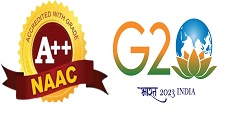Specility Centre
Medical Alerts
Introduction
Integrative approach focuses on the whole person and makes use of all appropriate therapeutic approaches, healthcare professionals and profession to achieve optimal health and healing.
It is well evidenced that the practitioners of Ayurveda and other Ayush systems of medicine are practicing and claiming for the prevention and management of different types of cancer conditions in different parts of the country. Prime importance is given for prevention rather than management in case of cancer and the same is stressed in the Ayush systems of medicine. Hence more attention will be given to prevent the cancer by inculcating the method of life style advised in detail in the systems (Sadvritta and Achara Rasayana). In the management aspect, starting with adjuvant therapy to combat the complications arising out of chemotherapy and radiotherapy can be admitted, as there are many evidences of combating the complications arising out of conventional treatment significantly. Later renowned and successful practitioners in the field of cancer will be brought to one platform using social media and the appropriate screened treatment strategies including Rasayana therapies, Panchakarma etc. will be discussed and adopted for the future research work.
Role in palliative care
To ensure quick restoration of optimal function, early and continued aggressive rehabilitation interventions should be provided, including physical and occupational therapy. Application of rehabilitation techniques (Panchakarma and other) frequently results in a swift functional improvement and a reduction of subjective complaints, even when the prognosis for life is considered poor. These interventions, when offered in an integrated and timely fashion, prolong life, protect organs and residual healthy tissue, reduce pain, and maximize self-care and mobility skills, and thereby help to reduce the stigma of cancer and physical impairment while providing dignity and a better quality of life for the cancer patient.
Need for integration:
While conventional systems provide standardized treatment protocols for specific pathological conditions, traditional systems provide more individualized treatments. There has been a steady advancement in the field and it is believed that conventional medicine can be adapted for use in a variety of other ailments. In addition, some of the traditional medicines may be able to be used uniformly on all individuals with reproducible outcomes. The current situation of cancer treatment modalities calls for further research, thus exploring all potential areas to the fullest extent appears to be the best course of action. More than 80% of the population in 170 countries registered with the World Health Organization continues to use traditional medicines even today. As a result, it is imperative that the various fields work together to develop a well-researched, safe, effective, affordable, and authentic treatment protocol that provides comprehensive patient care, thereby improving the understanding of these drugs and their effects and streamlining treatment methods worldwide.
OBJECTIVE:
Dedicated to engaging a global community of health professionals and health seekers in innovative education, training, leadership, inter-professional collaboration, research, and advocacy that embraces all global healing traditions, to promote the creation of health and the delivery of evidence-informed comprehensive, affordable, sustainable person-cantered care in a cancer patient.
Areas of integration-
- The prevention of diseases through the use of Ayurvedic interventions such as bio purification methods, rejuvenating and immunomodulator drugs, as well as an individually customized diet, lifestyle, and yoga program.
- Adjuvant therapy for chemo/radiotherapy to manage side effects and symptomatic management
- Chemo preventive for progression and disease-free survival, preventing recurrence
- Palliative and Therapeutic intent for the patients with advanced stage of cancer and unfit for chemo and radiotherapy
- Rehabilitation for cancer survivors by Ayurveda methods
- Development of integrative protocols as per the stage and type of cancers
- Carry out high quality collaborative medical research to evolve innovative solutions to the existing problem of the prevalent and emergent cancers in the country which are feasible and cost effective.
- Jointly organizing awareness programs
- Joint cancer screening facilities
- Joint integrative oncology conferences and CME
- Faculty exchange program



